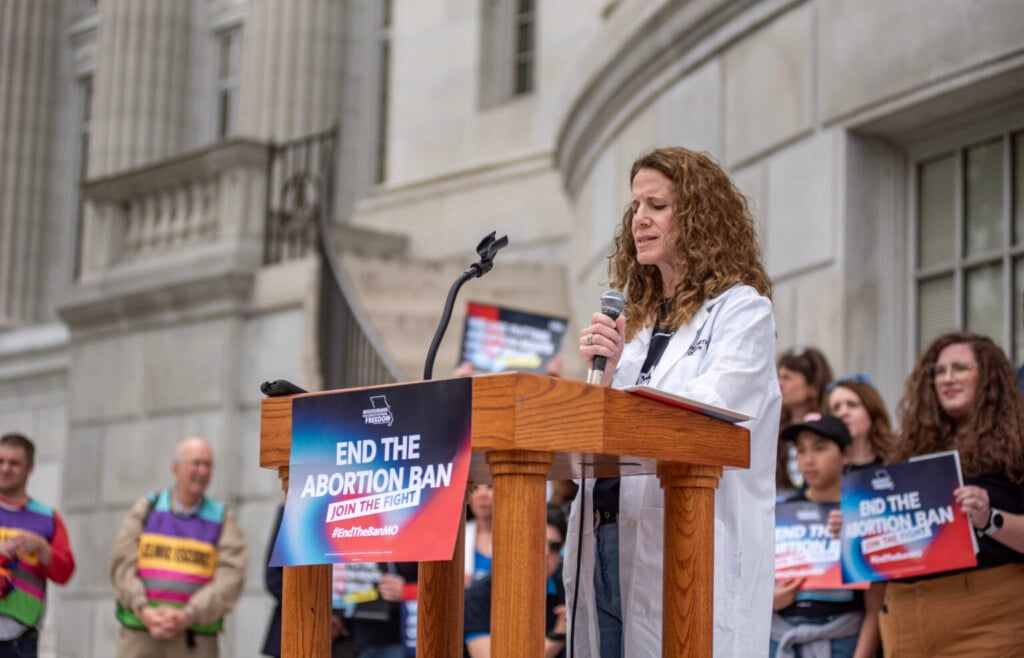Housing Heartbreak

As the Kansas City Wizards prepared to face the Chicago Fire in soccer at Arrowhead Stadium on Independence Day, two rows of Sudanese refugees stood for the national anthem. A TV cameraman hovered nearby, panning their faces, searching their dark eyes for some emotion to punctuate a happy ending to the story of these refugees’ tragic flight from their villages in the Sudan.
Score another public relations victory for the Don Bosco Center, Kansas City’s most prominent refugee agency.
“I am very pleased that 60 Minutes II is coming to town to film this piece,” Patricia Kern, director of development for Don Bosco, said in a July 3 Wizards press release. “The boys can absolutely not wait.” Sudan’s Lost Boys have become the center’s favorite image-makers, stage props before a false front that hides harsh conditions other refugees endure in Kansas City.
In March, 60 Minutes first told of the thousands of Lost Boys who trudged on foot for months — facing starvation, disease and death — until they reached refugee camps in Kenya, where they remained for several years. The Don Bosco Center resettled 25 of the men in Kansas City, lavishing much-deserved care on the long-homeless men. A front-page story about the Lost Boys in the June 14 Kansas City Star brought a wave of donations into the Don Bosco Center.
These refugees receive Don Bosco’s best care. They have apartments on the Country Club Plaza, Kansas City’s showplace for shopping, dining and upscale living. They ride with Don Bosco case managers to jobs (where they lift heavy bales of fabric for $6.50 an hour in a North Kansas City factory). Don Bosco has provided transportation to see the Royals, to watch movies, to visit others in the Sudanese community, to attend church and to shop at grocery stores.
The dignified treatment isn’t typical of Don Bosco’s operations, however.
Rodolfo Vall-llosera Lachataignerais didn’t get a Plaza apartment when Don Bosco resettled him four months ago. He’s in a northeast Kansas City unit, where a battered couch stands against a wall in the dingy living room. A small table sits in the corner. In the bedroom, a mattress and box spring rest on a stained carpet.
In Rodolfo’s tiny kitchen, jagged shards of glass hang in a window. The outside security door to the building — which is just off the Independence Avenue haunts of hookers and drug dealers — has a gaping hole where a doorknob and lock belong. In the courtyard, yellow tape cordons off a soggy trench as workers repair a pipe. The stench of sewage hangs in the air.
Rodolfo, a 53-year-old Cuban refugee, arrived four months ago from Guantínamo, where he lived in a house his parents built. Now he earns $7 an hour housekeeping at a downtown Kansas City hotel — a typical entry-level job open to non-English speaking immigrants.
In the hallway outside his apartment, Rodolfo wiggles his fingers up and down the scuffed wall and along the filthy carpet, depicting scurrying bugs and rodents. He stands beside the useless security door and draws a picture of a cockroach on a piece of paper. He motions toward the street. “Here, every day, five, six, seven cars, police,” he says, circling his fingers to depict flashing lights. “I go to work, I come home,” says Rodolfo, shaking his head. “When I am here, I stay inside. I don’t go anywhere. Here is bad.”
Like Rodolfo, many other refugees have found themselves in substandard housing thanks to the Don Bosco Center.
A building at 2715 Peery, where Don Bosco used to place Somalian and Sudanese refugees, was so dangerous that police shut it down in 1999 while the refugees were living in it. City inspectors found carbon monoxide or gas hazards from furnaces in all six apartments, stoves in three apartments and a water heater not vented properly. Inspectors found roaches, rodents and a rotting cat carcass in the basement. One apartment had no shower, tub or stove.
Kern, director of development for the Don Bosco Center, insists that the center would never place refugees in such a building today. However, Kern refused to disclose exactly where the center’s nationalities department now houses refugees. She and Perry High, resettlement coordinator for Don Bosco, agreed to show the Pitch one unit — a clean and secure apartment on Wabash. They also consented to the Pitch‘s request for an official tour of Rodolfo’s apartment building, although it had been cleaned up a bit since a previous unofficial visit. A week earlier, broken screens hung from some windows while other windows, on upper floors, were propped open with no screens in place. Trash littered the courtyard.
Although High admitted that five refugee families live in the three-building complex, he claimed he had no immediate plans to place more refugees there. The day before the official tour, the resident manager told the Pitch he expected a Sudanese family to move in that weekend. When the manager was asked again about the Sudanese family in the presence of High and Kern, he said the refugees had “changed their minds” that morning.
Kern’s eagerness to promote the Lost Boys on 60 Minutes II is not matched by an eagerness to talk about other refugees’ living conditions. Although she arranged a group interview for the Pitch with case managers and other staffers from the nationalities department, she ended the session abruptly when questions turned to whether Don Bosco had placed clients in several run-down buildings pointed out by local refugees.
Over the past few years, the Don Bosco Center has placed about thirty refugee families in apartment buildings managed by Bobbi Baker-Hughes, who is secretary of the center’s board of directors. Baker-Hughes insists that her position on the board doesn’t constitute a conflict of interest. Housing decisions are made by Don Bosco staff and management, says Baker-Hughes, not by the board of directors.
The Don Bosco Center resettles between 400 and 450 refugees per year. Kern gave the Pitch an itemized budget of revenues and expenses for all of its programs but would not disclose the individual sources of revenue for the nationalities program (which includes $1.5 million in government revenues and $32,000 from foundations). Forty-eight percent of the $1.6 million in revenue for Don Bosco’s nationalities program is spent on personnel costs, and 28 percent goes toward direct assistance expenses.
According to a spokesperson from the State Department, the Don Bosco Center receives a one-time $500 payment per refugee from Immigration Refugee Services of America, a nonprofit organization funded in part under the State Department’s budget. The center is required to use $288 for housing, furniture and food for refugee families. Additional costs are covered by the Don Bosco Center, although Kern would not disclose those program expenditures to the Pitch.
Kern refused to provide a breakdown of spending for the average refugee. Kern also would not answer whether the Don Bosco Center had placed refugees in three especially run-down buildings managed by Baker-Hughes or whether the center had placed refugees in one specific dangerous building.
The State Department, which funds part of Don Bosco’s refugee resettlement program, recommends that refugee housing be at least “safe, sanitary and in good repair.” Don Bosco meets those requirements, Kern insists. The center has a checklist that covers such items as smoke alarms, plumbing, door locks and windows. The form must be filled out before refugees’ arrival in an apartment, and High says that housing complaints from refugees or case managers receive prompt attention. But clients tell a different story.
One Somalian (his name is withheld by request) who came to the United States three years ago provides translation services to new arrivals. He regularly hears complaints from Somalian Don Bosco clients. Because they’re grateful for any assistance they receive, he says, they are reluctant to complain at all. But the interpreter has seen their problems himself.
“[Don Bosco] puts them in cheap trash places,” he says. After the case managers — who on average handle 25 families each — assist refugees with obtaining food stamps, receiving medical care and signing up for English classes, the clients rarely see them, he says. Before Kern put an embargo on interviews, Annie Heitman, a Don Bosco case manager, said that intensive assistance to refugees can last as long as eight months.
“It’s always ongoing,” Heitman said. “Some need less assistance, maybe one month, but we see them when they pick up their check at Don Bosco every week.” The Don Bosco Center’s goal is for each refugee to quickly become self-sufficient. Most find jobs and eke out a living until they improve their English skills enough to earn more money. Still, the interpreter says, Don Bosco places hundreds of refugees in crummy apartments in bad neighborhoods and leaves them to fend for themselves as soon as they find jobs.
“Ninety-nine percent of the refugees have been dumped by Don Bosco, and the other 1 percent are for the media,” he says.
One Sudanese refugee, Mohamed (who declined to use his real name for fear of endangering resettlement of his other relatives), says his mother arrived last year with six children and was placed by the Don Bosco Center in a northeast Kansas City apartment with no dishes, a ripped-up couch, no beds for two days and a broken lock on the front door. A year later, the lock hasn’t been fixed or replaced. And when the heat quit working for most of last winter, Mohamed says, the people at Don Bosco gave his mother only a small space heater to warm the three-bedroom apartment.
Mohamed believes that poor housing for Don Bosco refugees is the norm rather than the exception. “Usually, our people, when they come here, they want to work,” says Mohamed, who lived in an apartment while a university student in a large city in Sudan. “Don Bosco thinks that all people who come from Africa lived in the jungle. They think our people will stay anywhere.”
When asked how many refugees (other than the highly publicized Lost Boys) Don Bosco has placed on the Country Club Plaza, Kern demurred. “We work with a variety of apartment managers,” she replied in a written statement.
Early on a summer evening, Don Bosco’s Lost Boys of Sudan — four to each two-bedroom Plaza apartment — sprawl exhausted on comfortable sofas after a hard day’s work. Their mattresses and box springs rest on bed frames well above the carpeted bedroom floors. Their cupboards are filled with food, and they even have a personal computer, a VCR, plenty of videotapes and a telephone, courtesy of the Don Bosco Center. Outside, a glittering swimming pool shimmers invitingly. It’s a far cry from a dusty desert refugee camp. Not to mention a northeast Kansas City hovel.




